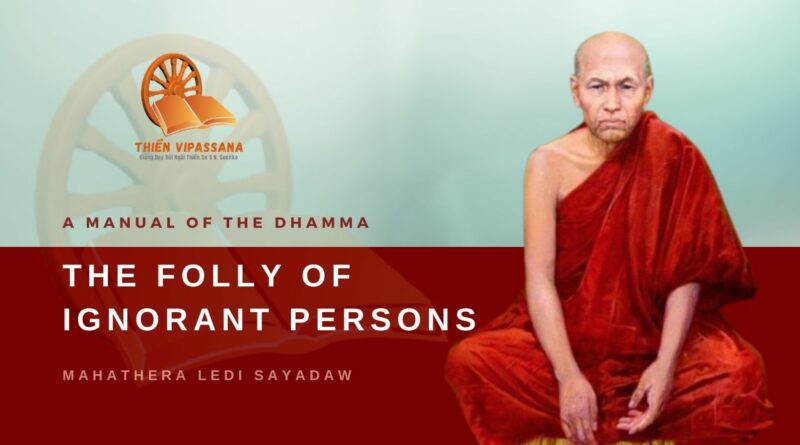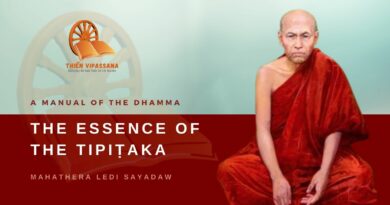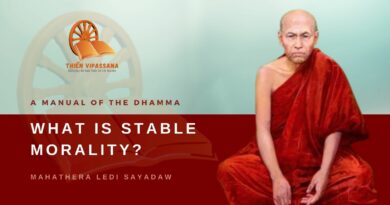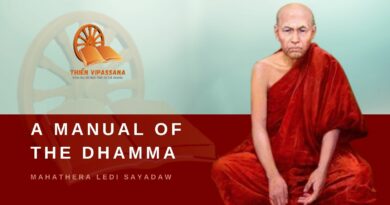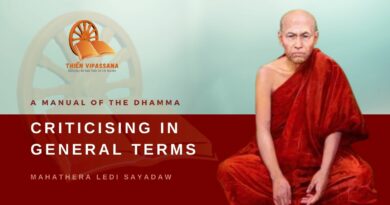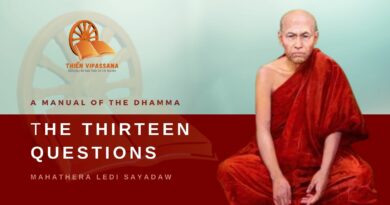The Folly of Ignorant Persons
Common, superficial, and temporary morality must not be overvalued, since it is unstable, and not genuine. To illustrate, the folly of ignorant persons may be cited. Those with mystic powers are very rare, it is hard to meet such a person even once in a lifetime. Once, an ignorant, foolish person met such an adept, and was granted a boon. He asked for the purgative medicine that is commonly available in every household. Thus he lost his precious opportunity to get rare, precious things.
One day a foolish villager met Sakka, the king of the gods. When Sakka granted him a boon, the foolish man asked for a match and a matchbox that would light fire immediately. Sakka gave him these things, but matches are common things in the world. The man received nothing of any value.
In Ava, during the sixteenth century, a king, while hunting, met a powerful adept who granted him a request. So the king asked for a nymph so that he could enjoy the greatest sensual pleasures. He achieved his desire, but the enjoyment of sensual pleasure is commonplace. Moreover, the king got lost and the nymph disappeared. He got his satisfaction only once and then died in the forest with a deranged mind, longing for the nymph.
The above stories clearly show that this rare chance must be grasped with knowledge and wisdom so that it is advantageous. When the Buddha has appeared and his very rare dispensation still exists, a disciple must not rest content with common and inferior temporary morality, which is unreliable. A wise person must strive for the rare and precious stable morality, which is priceless and unique. Those who think too highly of momentary and unstable morality are like those foolish persons who asked for common things when granted a boon. The defect of temporary morality must be appreciated.

